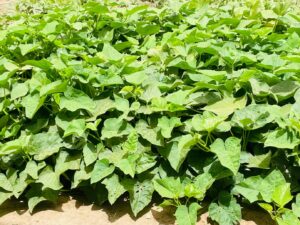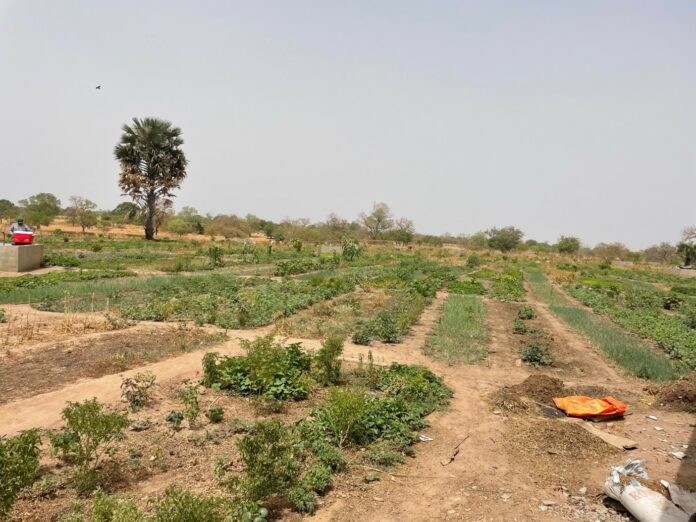By: Dawda Baldeh
Women gardeners in Kuwonkuba, in the Upper River Region, have hailed the Unintentional Persistent Organic Pollutants (UPOPS) Compost Project for boosting their vegetable production over the years.
They made these remarks during project site inspections by the Ministry of Environment and other stakeholders across the country.
The rural gardeners who benefited from the project, implemented by the National Environmental Agency (NEA) and UNDP, acknowledged that it has significantly improved their production.
This project, which started in 2019, is a five-year initiative focusing on training gardeners to make compost manure to boost production rather than using chemicals.
Kaddy Touray, the Assistant Secretary of the Gardeners’ Association, said the compost project has boosted their production.

Picture of Kaddy Touray, Gardeners’ Association Assistant Secretary
“Before, we were using chemicals on our vegetables, and production was low,” she said, adding that since they started using compost manure, production has increased.
“The organic manure is very good for our vegetables, and it helps them grow faster and healthier,” she added.
Comparing the durability of vegetables grown with organic ingredients to those with chemicals, Ms. Touray said, “When we were using chemicals, our vegetables didn’t last long and would get rotten. But since we started using organic manure from the compost, our vegetables are healthier and can stay longer without getting rotten.”

Vegetables planted with organic manure
Nemuna Camara, a seasoned gardener and Treasurer of the Gardeners’ Association, underscored the importance of consuming organic vegetables rather than those treated with chemicals.
She argued that there are health risks involved in consuming vegetables that have been treated with chemicals and urged people to eat organic vegetables.
“The chemicals that are usually applied to our vegetables have health effects and are not good for our health. But the vegetables that are grown using organic compounds have no health effects,” she argued.
The Kuwonkuba women’s garden accommodates over three hundred and fifty-eight gardeners.

Picture of some women gardeners
Despite their increased vegetable production over the past years since they began using organic manure in their gardens, these determined gardeners face challenges such as the lack of a storage facility and market access.
They called on the government to assist them by providing storage facilities to mitigate the loss of income. They also want the garden to be expanded so that other women in the village who want to venture into vegetable production can also have space.
After hearing the concerns raised by the villagers, officials promised to engage the relevant authorities to help ease their burdens and boost crop production.




